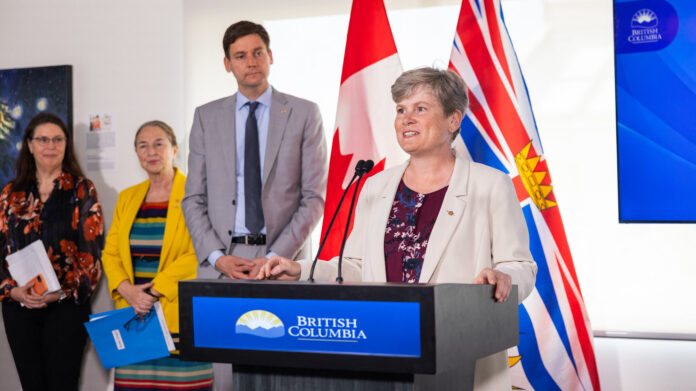The B.C. Greens say a new government report on the state of the primary care system is “a step forward,” but it highlights some gaps.
The report, released Thursday, is the first of two outlining key findings from the health ministry’s assessment of B.C.’s primary care system. The report was required under the Cooperation and Responsible Government Accord, or CARGA, which commits the B.C. Greens and NDP to work on shared priorities.
The 33-page report provides an overview of investments in B.C.’s primary care system since the launch of the primary care strategy in 2018.
The ministry notes the first report is not intended as a comprehensive performance assessment of the entire system. It includes team-based care models such as urgent primary care centres and community health centres. It also includes metrics, including the number of health-care providers in B.C. and how many residents have a primary care provider.
“This report is an important first step in our work to make the most of existing resources, identify ongoing challenges and better plan for the future,” said Health Minister Josie Osborne in a statement.
The report says nearly 750,000 people in British Columbia have become newly attached to a primary care provider since 2018. As of June 2025, 76 per cent of people in B.C. have a long-term primary care provider.
However, the B.C. Greens said the report highlights “the lack of access in rural and remote communities compared to urban centres.”
The report shows just over 73 per cent of residents in northern B.C. have a primary care provider. Vancouver Island is also below the provincial average, at 73.8 per cent.
“This report confirms what we said during the campaign: B.C. doesn’t have a doctor shortage — we’re just not using our doctors effectively, or serving the entire province equitably,” said interim leader Jeremy Valeriote.
The report says the province has funded 41 urgent primary care centres since 2018. It has funded 14 community health centres, which are intended to provide care for those facing mental health or substance abuse issues and other priority populations.
The B.C. Greens said the report provides “valuable insights,” but fails to address patient complexity, satisfaction and health outcomes. They also note it was developed with “limited” input from non-governmental care providers or other stakeholders.
The province said the final report, due this fall, will assess barriers affecting the system’s expansion and effectiveness, to help shape future policy and funding.
Something going on in the Prince George area you think people should know about?
Send us a news tip by emailing [email protected].







